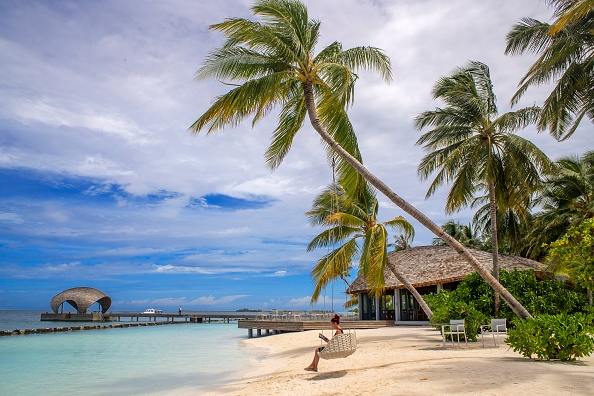Despite the feats that Spanish sport has achieved throughout history, cinema hasn’t gone too far. Yes, of course there are titles that have explored the preparation, the victories, the defeats of some sports, among the most contemporary, titles such as ‘Days of football’, ‘The great Spanish family’, ‘Second assault’ or ‘Amato Alacrán’ . However, he rarely strayed from the usual sports of football, basketball or boxingto tell true stories that have become part of the history books.
It is the case of the silver medal for the Spanish men’s water polo team at the 1992 Olympicsa metal that made history, as it kept an entire country in suspense in a competition that had always been seen as a niche and which led one of the most exciting matches experienced in games, having to reach three stretches that led to the limit athletes. And it was a challenge as the team had a fateful seasondespite also taking a silver medal at the 1991 Perth World Championships and the Athens European Championships the same year, the team fell short of the top four teams at the 1988 Seoul Olympics and qualified for 92 as a minimum.

Indeed, ’42 seconds’ wants to tell what was behind the results and the change of direction that the team experienced until the Olympic Games, how the team spirit has been renewed, thus creating a glorious era for Spanish water polo. All a path that led to a change of coach, the Croatian Dragan Matutinovic, who with a strong and extreme training style, gave a change of course to the team. Of course, this is the story and the film goes into it creating the epic sensation typical of sports cinema, which elevates the proposal.
It is not easy for him, since water polo is not as popular a sport as football, tennis or basketball. However, Carlos Franco’s screenplay captures and keeps the audience in full anticipation, managing to create that atmosphere typical of sports drama, with which it is also used to tell how team spirit is forged. In this sense, the film tells the difficult encounter that arose between the old guard, composed mainly of the Catalan club, with the new batch of players, mostly from Madrid.
The illusion of a selection that has shown that unity is strength
Beyond the political interpretation that you want to give it, the film tells how the differences were collapsing and how we arrived at the Olympic Games with a united team in which the differences were parked. Although Matutinovic’s hard training makes the film similar to “Black Swan” or “Whiplash”, especially in the way he chose the players for the national team. The film addresses the dilemma of hard training in the face of a series of situations that, today, would be seen with different eyes.

But ’42 seconds’ goes much further and this is seen when you jump onto the field of the Olympic competition. Here the film shows a dramatic solvency and good time management, especially to create that feeling of expectation that those who do not remember the result of the championship will live with maximum tension and remember that teamwork and trust in the partner are fundamental elements in the sport. Added to this is that the film shows how the whole country became aware of the game, showing that miracle that only the JJ.OO. they get.
And that’s it, After the silver medal in Barcelona 92, a moment of splendor for Spanish water polo has arrivedwith Olympic gold in Atlanta 96 and also gold at the World Championships in Perth 98 and Fukuoka 2001.
Body and soul in this sports drama
Although none of this is felt without its main actors, as well as a careful technical aspect. Álvaro Cervantes and Jaime Lorente defend their role as rivals converted into loyal companions very well. Particularly noteworthy is the actor of ‘Carlos, Rey Emperador’, who also recounts the torments suffered by Manel Estiarte himself. Lorente is as right as Pedro García Aguado, proving that the water polo player’s demons were very different from those of the national team captain. Alongside notable interpretations, a technical section is added that also manages to bring back that nineties spirit so complicated to be transferred to current productions.

Unlike the 80s, the 90s had a lower aesthetic weight and few productions manage to maintain that atmosphere of reliving the year 92. ’42 seconds’ succeeds. Dani de la Orden returns to drama in a big way, a genre he hadn’t tackled since his romantic tandem film on ‘Barcelona’. The director, specializing in comedy, It has Àlex Murrull as co-director, who is making his film debut. Both manage to direct a proposal worthy of the best sports dramasremembering that it is possible to carry out this type of production in the Spanish industry.
’42 seconds’ is a miracle, given that Spanish cinema hardly ever enters the sporting achievements of their country. To this is added that his epic evokes emblematic titles of the genre such as ‘Fire car’, ‘They give the blow’, ‘Every Sunday’, ‘Warrior’ or the documentary ‘Red Army’. There could not have been a better tribute to Spanish water polo.
Note: 8
The best: The epic feeling that is present throughout the film and that increases in the Olympic tournament.
Worse: Some scenes from the beginning of the film.
Source: E Cartelera




